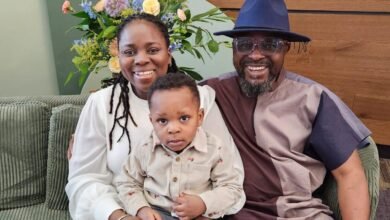When Tragedy Tests Fatherhood: Lessons from the Charlie Kirk Assassination and a Father’s Duty

These are sensitive times. The killing of Charlie Kirk is not merely a political headline; it is a searing indictment of our shared humanity.
I must be clear: I do not side with any ideology. I am not partisan, nor am I an “independent” in the political sense. My loyalty is to the transcendent agenda of God on the earth, the redemption of man to Himself (2 Corinthians 5:18-19). By that measure, taking a man’s life in cold blood is indefensible.
We do not yet know why Charlie Kirk was assassinated. A suspect has been arrested, but a trial is still to come. Whether he acted alone or with others is unknown. Until facts are tested in court, conclusions about motive remain speculation. Yet even in this vacuum, a troubling pattern emerges: some voices have rushed to justify the act by pointing to Kirk’s views, as though what he said or stood for should blunt our outrage.
That is a slap on our humanity. To suggest that a man’s words or beliefs make his killing less tragic is to erode the very foundation of human dignity. It reveals how desensitized we have become, and what kind of poisoned legacy we are handing to our sons and daughters.
If we can campaign against capital punishment, arguing that even after due process the state has no right to take life, how much more should we condemn assassination, which denies due process altogether? To attempt to justify killing by debating what a man has said or not said, who he is or is not, is itself a symptom of moral depletion.
I stand on this principle: I may not agree with what you say, but I defend your right to say it, because I too claim the right to speak my own truth. To kill someone because of their speech or belief is not only wrong; it is a direct assault on the very foundation of coexistence.
The Father’s Agony
Another layer of this story is the suspect’s father, who recognized his 22-year-old son in released images and facilitated his surrender. Many have dwelt on the agony of that decision. It was, without question, a profoundly difficult duty. To acknowledge that it was his duty is not an indictment of him, it is to recognize the heavy weight that life sometimes places on fathers and mothers.
There are duties that break the heart even as they must be carried out. This is one of them. His action does not tell us the full measure of the man he is, nor the full story of his journey as a father. There are many variables, influences, and hidden struggles that shape such outcomes. What we can say, however, is that when such moments arise, they become laboratories for the rest of us to learn from.
The law recognizes that life belongs not only to the family but also to the state. The same law that forbids a father from taking his son’s life also forbids him from shielding that son when implicated in a crime against society.
History offers parallels. The mother of Pablo Escobar, when her son was finally killed, said, “Thank God, at last he will rest.” In Nigeria, the accomplices of notorious criminal Lawrence Anini, known as the Johnbull brothers were turned in by their mother. These are painful testimonies of fathers and mothers who, faced with the unthinkable, acted within the bounds of law and duty.
This is not an indictment of Robinson’s father. Duties can be agonizing, yet still unavoidable. Life sometimes places parents in positions they would never pray for, but when it does, the rest of us must pause, study, and learn.
The Fatherhood Conversation
As a 55-year-old father raising a 3-year-old boy who turns 4 next month, my deeper concern is not to agonize over what Robinson’s father felt. My concern is this: what lessons must I inculcate in my son today, so that in 19 years I am not faced with such a fate?
This is the heart of the fatherhood conversation. Sons and daughters will either be beneficiaries or casualties of our example. They will either inherit the integrity we model or the contradictions we excuse. To pretend otherwise is to tempt history.
Scripture warns: “Let him that thinketh he standeth take heed lest he fall.” It is those who stand who can fall. These things happen and are written for our example.
Where Do We Go From Here?
For fathers, the question is urgent: where do we go from here? How do we raise children who honor both God and the state, who understand freedom but also accountability? What do we learn from moments like this?
The lessons are clear:
✅Fatherhood carries layered responsibilities. In moments of crisis, the duty to society and the law can weigh as heavily as the duty to our sons and daughters.
✅The deeper work begins long before crisis. Our calling is to raise sons and daughters with integrity, so that we never find ourselves at such crossroads.
✅Example is the true seed of fatherhood. The values we live, not just the words we speak, shape whether our children grow as beneficiaries or casualties of what we model.
The tragedy of Charlie Kirk’s death is a wound on our collective humanity. The agony of a father facilitating his son’s surrender is not an indictment but a reminder of the heavy demands life can place on us. For me, as a father of a young boy, it is a summons to vigilance, integrity, and for example not as a guarantee of outcomes, but as my own sacred duty.
Do have an INSPIRED weekend with the family.




